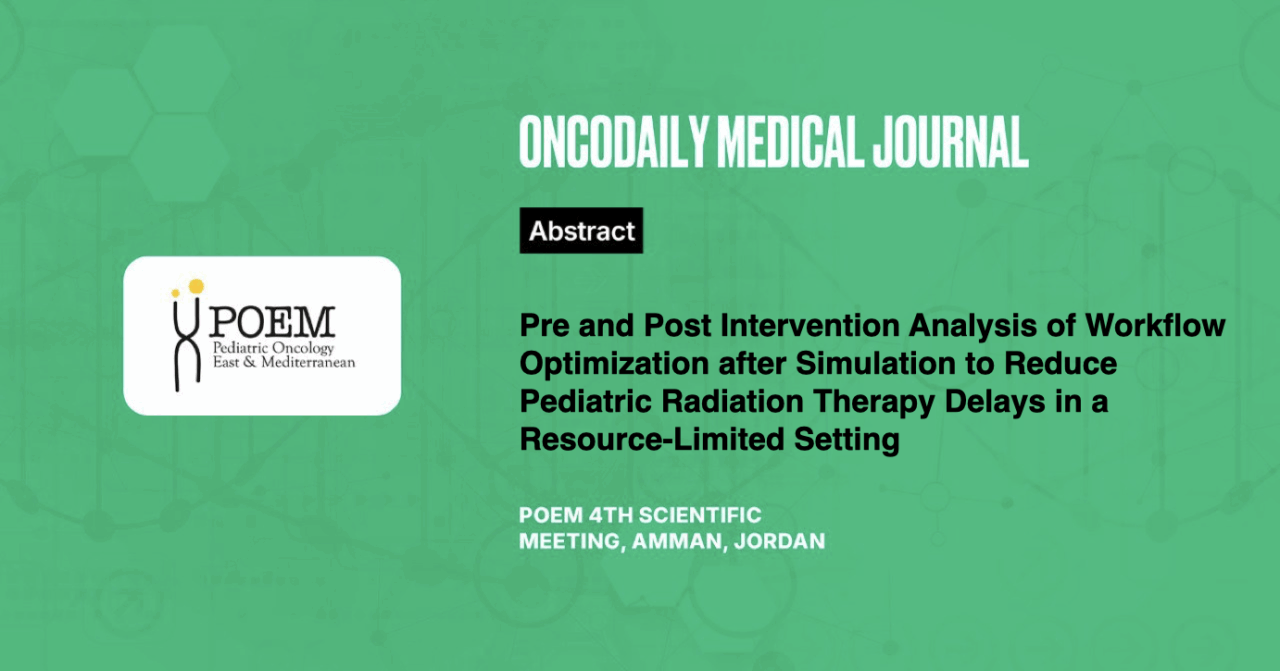Pre and Post Intervention Analysis of Workflow Optimization after Simulation to Reduce Pediatric Radiation Therapy Delays in a Resource-Limited Setting
Abstract
Introduction: Timely initiation of radiation therapy (RT) is crucial for optimal local control in pediatric cancer patients. This study evaluated RT delays pre- and post-intervention at a tertiary care hospital, assessing the impact of the AKU-Indus Coordination Meeting on reducing or modifying delay causes.
Methodology: A retrospective analysis was conducted on pediatric patients treated with RT from December 2016 to May 2021 and June 2021 to November 2024. Patients with delays exceeding 10 working days between planning CT and RT initiation were included. Demographic, clinical, and delay-related data were analyzed.
Results: Pre-intervention, 224 patients were treated, with 199 delays in 175 patients (78%). The mean age was 8.6 years, with most cases being sarcomas (n=81), lymphomas (n=45), renal cancer (n=21), and others (n=28). Delays ranged from 11–15 days in 37% (n=73), 16–20 days in 36% (n=72), and over 20 days in 15% (n=30). The leading causes were peer review meeting (PRM) changes (51%), complex planning (18%), and machine-related issues (24%).
Post-intervention, 178 patients were treated, with delays in 135 cases (75%). Delays of 11–15 days decreased to 32% (n=57), while 16–20-day delays dropped to 15% (n=28), but delays over 20 days increased to 25% (n=45). The primary causes shifted to imaging unavailability and radiological discussions (55%, n=75), followed by complex planning (34%, n=46), PRM changes (26%, n=25), and machine-related issues (11%, n=15).
Conclusion: Workflow optimization, including the AKU-Indus Coordination Meeting and early peer review, has reduced shorter delays but highlighted persistent challenges in imaging availability. Early involvement of pediatric radiation oncologists in multidisciplinary team (MDT) discussions can optimize treatment sequencing and imaging requests. While delays have improved, ongoing refinement of coordination and resource allocation is needed in resource-limited settings.





